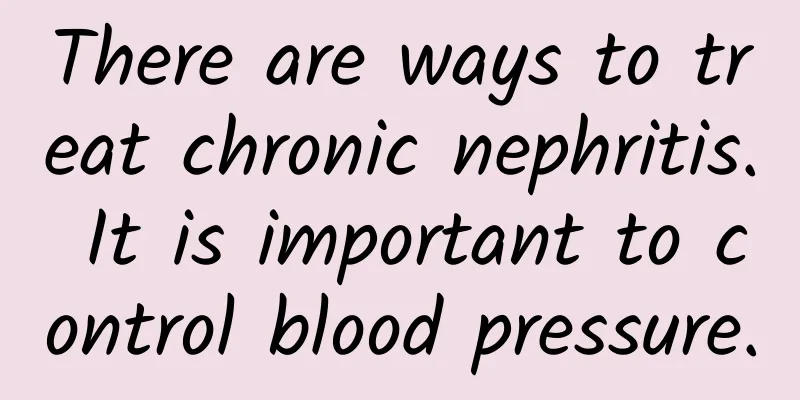What is the normal heart rate for adult men?

|
The heart is an important organ in the human body. Once the heart cannot function normally, it will not be a small problem for a person. Therefore, we should always pay attention to the health of the heart, which requires us to develop the habit of regular physical examinations, only in this way can we find hidden dangers in time. Measuring heart rate is an essential item in physical examinations, and whether the heart rate is normal or not can be used as a basis for judging the physical condition. So what is the normal heart rate for an adult male? Heart rate refers to the frequency of heartbeats, the number of times the heart beats per minute. A normal person's heartbeat is 60 to 100 times per minute when calm. The heartbeat speeds up during exercise, and athletes with better cardiopulmonary function have slower heartbeats than normal people. Heart rhythm refers to the rhythm of the heartbeat, which should not be confused with heart rate. What is the standard heart rate for adults? 1. The heart rate of normal adults at rest varies significantly from person to person, averaging about 75 beats/minute (between 60 and 100 beats/minute). Heart rate can vary depending on age, gender, and other physiological conditions. Newborns have very high heart rates, which can reach over 130 beats/minute. Among adults, women's heart rates are generally slightly faster than men's. For the same person, the heart rate slows down when quiet or sleeping, and speeds up when exercising or emotionally excited. Under the influence of certain drugs or neurohumoral factors, the heart rate can speed up or slow down. People who regularly do physical labor and exercise usually have a slower heart rate. In recent years, a large sample of healthy people in China have found that the normal range of resting heart rate for Chinese men is 50-95 beats/minute, and for women it is 55-95 beats/minute. Therefore, heart rate changes with age, gender and health status. 2. The heart rate of a healthy adult is 60 to 100 beats per minute, most of them are 60 to 80 beats per minute, slightly faster for women; children under 3 years old are often above 100 beats per minute; the elderly are slower. An adult with a heart rate of more than 100 beats per minute (generally not more than 160 beats per minute) or an infant with a heart rate of more than 150 beats per minute is called sinus tachycardia. It is common in normal people after exercise, excitement, agitation, smoking, drinking and drinking strong tea. It can also be seen in fever, shock, anemia, hyperthyroidism, heart failure and the use of atropine, adrenaline, ephedrine, etc. If the heart rate is between 160 and 220 beats per minute, it is often called paroxysmal tachycardia. A heart rate lower than 60 beats/min (usually above 40 beats/min) is called sinus bradycardia. It can be seen in people who engage in long-term heavy physical labor and athletes; pathological bradycardia can be seen in hypothyroidism, increased intracranial pressure, obstructive jaundice, and overdose or poisoning of digitalis, quinidine or propranolol. If the heart rate is lower than 40 beats/min, atrioventricular conduction block should be considered. A fast heart rate of more than 160 beats/min, or lower than 40 beats/min, is mostly seen in patients with heart disease. Patients often have palpitations, chest tightness, and precordial discomfort. Detailed examinations should be performed as soon as possible so that treatment can be targeted at the cause. The amount of blood pumped from the ventricles to the arteries each time the heart contracts is called the stroke volume, and the amount of blood pumped per minute is called the minute output. In a normal person's resting state, the stroke volume is 70 ml. If the heart rate is calculated at 75 beats per minute, the minute output is about 5250 ml. The amount of cardiac output is an indicator of the heart's working capacity. We all know that a normal heartbeat is regular. If you have a fast or slow heart rate, you need to seek treatment in time. After understanding the standard heart rate for adults, don't always think that it's no big deal when you have heart problems. You must take it seriously. If you feel unwell, you must seek treatment in time. You must also maintain a good mood and stay away from tobacco and alcohol as much as possible. |
>>: What are the wonderful uses of Fengyoujing for men?
Recommend
What to do if your skin is dry and has wrinkles? I have 3 tips to share with you~
High temperatures in summer are extremely harmful...
What should men do if they have a bad smell down there?
Having an unpleasant odor down there is a relativ...
A small piece of dried ginger can make a man vigorous and energetic
Ginger is a seasoning that people usually use in ...
When taking a bath in summer, three things you should not remember
In summer, the human body produces more sweat, so...
Nonbacterial prostatitis heals spontaneously
Is it possible to cure nonbacterial prostatitis? ...
Beware! Men aged 45 are most likely to become fat and obese
Many people tend to gain weight after marriage, w...
How to fry amaranth and what are the benefits of eating more amaranth?
The unique amaranth is a common vegetarian ingred...
What does a smooth glans mean?
In today's society, many men feel that they a...
What causes acne on the penis?
The penis is an important male reproductive organ...
What are the ways for men to keep fit?
Men are the symbol of strength. In order to enhan...
What can I eat to replenish my sperm?
Nowadays, the social competition is intense and t...
Is the nucleic acid method accurate for HIV testing? Do I need to test again after 3 weeks using the nucleic acid method?
AIDS has spread throughout the world. Advanced te...
Can I still ejaculate after having a vasectomy?
Male sterilization surgery is to cut off the ejac...
What should men do if they have weak sperm?
Men's physical weakness is a manifestation of...
What causes male nocturnal ejaculation?
After entering puberty, many male friends are ask...









